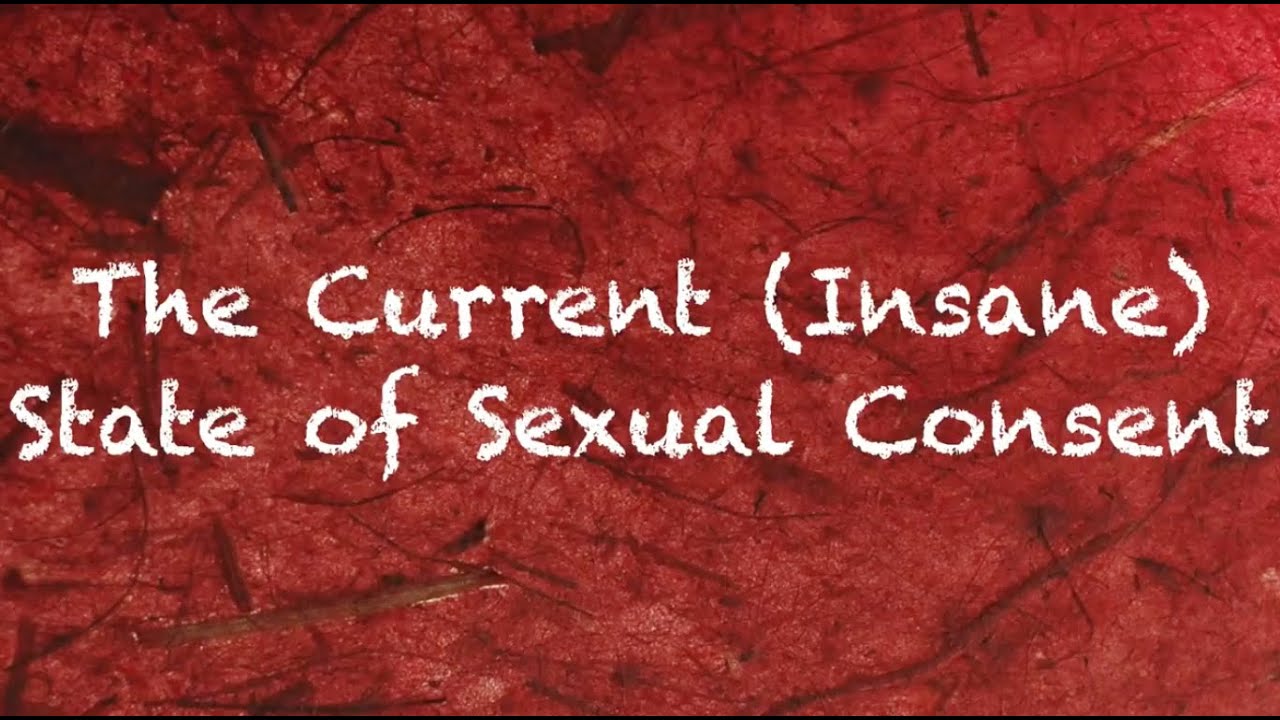The Current (Insane) State of Consent

Key Takeaways
- 💡 Consent in sexual encounters is crucial and legally required to prevent instances of rap3.
- 🔄 Consent can be perceived as fluid, leading to potential retrospective claims of non-consent.
- 🚨 Absence of evidence in consent cases often favors the woman’s testimony over the man’s.
- 📝 Creating tangible proof of consent after each sexual encounter, such as text messages or recorded conversations, is recommended.
- 🚩 Feminism’s influence has made consent more malleable, allowing women to change their minds after sexual encounters.
- 😔 Malleable consent undermines the notion of women’s agency and autonomy in sexual encounters.
- ⚠️ Men are advised to take proactive measures to protect themselves against potential accusations, regardless of their familiarity with the woman.
- 💡 Creating evidence of consent serves as insurance against false accusations, offering significant protection in case of legal disputes.
The Importance of Consent in a Changing Sexual Marketplace
In this blog, we will discuss the evolving nature of consent in today’s sexual marketplace. We will explore the three key conditions that must be met for a sexual encounter to be considered consensual, and the potential dangers that can arise when consent becomes fluid and changeable over time. We will also provide practical advice on how individuals can protect themselves by creating evidence of consent after each sexual encounter.
The Three Conditions of Consent
Consent is a fundamental aspect of any sexual encounter. In the current deregulated sexual marketplace, there are three key conditions that must be met for a sexual encounter to be considered consensual:
- Desire: Both parties must genuinely desire each other.
- Age of Consent: All participants must be on the same side of the legal age of consent.
- Voluntary Consent: There must be explicit and voluntary consent from all parties involved.
These conditions are crucial to ensuring that all individuals involved in a sexual encounter are willing participants. Without these conditions, a sexual encounter can be considered non-consensual, or in other words, rap3.
The Fluidity of Consent
While consent is essential, it can also be a complex and nuanced topic. Consent can sometimes be ambiguous, as one person’s perception of consent may differ from another’s. A prime example of this is when one person says “no,” but their actions suggest otherwise.
It is important to recognize that consent can change over time. What may have been consensual during a sexual encounter can later be viewed as non-consensual. This fluidity of consent poses significant challenges, particularly for men, who may find themselves facing accusations of rap3 even if the sexual encounter was consensual at the time.
The Potential Dangers
Imagine a scenario where you have a sexual encounter with someone who later claims that there was no consent. The consequences can be severe, including legal charges and potential imprisonment. The lack of concrete evidence often favors the accuser, making it crucial for individuals to protect themselves in these situations.
It is essential to understand the environment we are in, where consent can change after the fact. In today’s society, a woman’s word is often given more weight than a man’s, leading to potentially damaging outcomes for the accused.
Protecting Yourself: Creating Evidence of Consent
To safeguard yourself from false accusations, it is vital to create evidence of consent. This evidence can help prove that consent was given at the time of the sexual encounter, even if the accuser later claims otherwise.
One way to create evidence is by establishing clear communication after the sexual encounter. Sending a text message or an email, or recording a conversation where the person reaffirms their consent, can serve as crucial evidence in protecting yourself.
For example, after a sexual encounter, you can send a text message asking if the person enjoyed themselves and if they consented. Their response can act as proof of their initial consent.
The Role of Feminism in Changing Consent
The current challenges surrounding consent can be attributed, in part, to the influence of feminism. While feminism aimed to empower women, it inadvertently introduced the notion of malleable consent, wherein a person can withdraw consent after the fact.
This shift in consent undermines the idea that adults are capable of giving and revoking consent. By treating women as if they are children who cannot fully comprehend their choices during a sexual encounter, feminism inadvertently contributes to the erosion of consent.
The Unintended Consequences
These changes in the perception of consent have unintended consequences. Sensible men, who make up the majority, look at women with contempt because of this malleable consent. They find it difficult to take women seriously, as their consent is no longer seen as definitive.
While there are undoubtedly women who deserve respect and admiration, the overall perception of women as a group suffers due to the unintended consequences of malleable consent. Men, like myself, struggle to trust women who have not vocally opposed this idea.
The Importance of Protecting Yourself
Given the changing landscape of consent, it is essential for men to protect themselves to avoid potential false accusations. This means creating evidence of consent after every sexual encounter, regardless of how well you know the person.
Protecting yourself is a small inconvenience compared to the potential lifelong consequences of being falsely accused of rap3. By taking a few simple steps, such as communicating through text messages or recording conversations, you can establish the necessary evidence to safeguard yourself.
Conclusion
Consent is a crucial aspect of any sexual encounter. However, in today’s ever-changing sexual marketplace, the fluidity of consent poses challenges and potential dangers, particularly for men. By understanding the evolving nature of consent and taking proactive measures to create evidence, individuals can protect themselves from false accusations and ensure that all sexual encounters are consensual.






